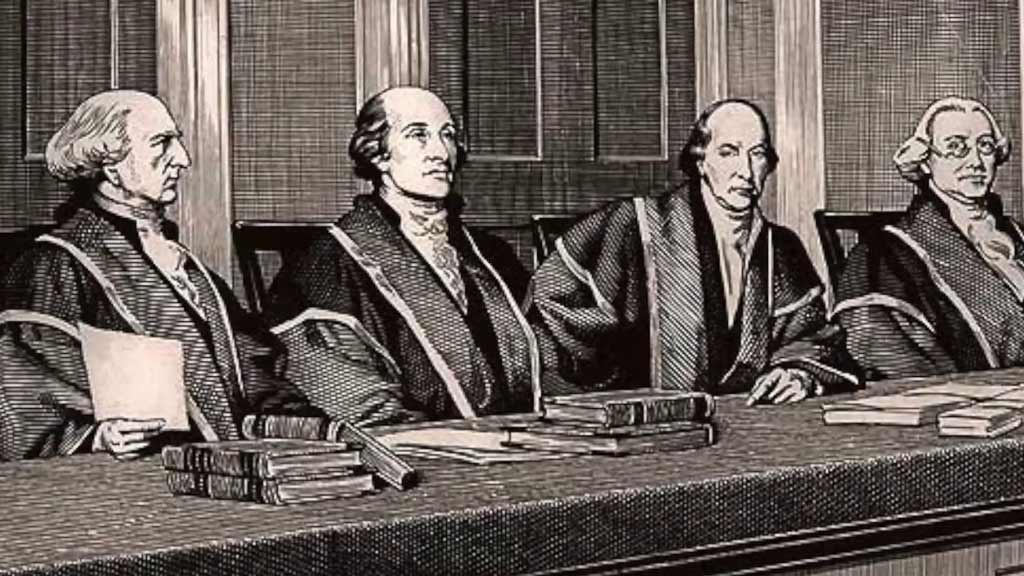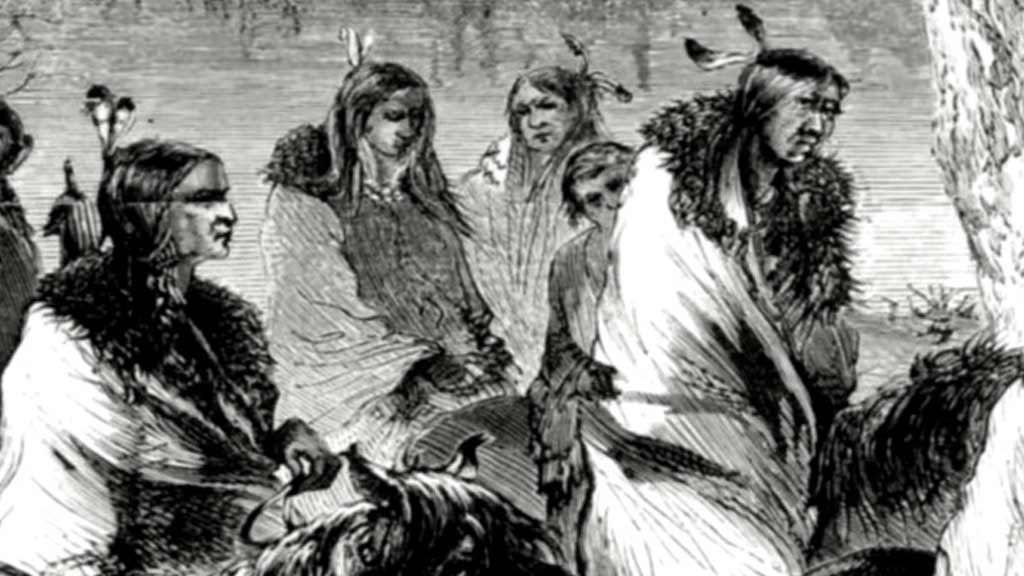When delving into the case of Worcester v. Georgia, you’re transported back to a pivotal moment in American legal history.
The core issue at hand revolved around the clash between state and federal authority, sparking debates that resonate even today.
In this landmark case, the Supreme Court grappled with questions of tribal sovereignty and the extent of state power over indigenous nations.
As you explore the intricacies of Worcester v. Georgia, you’ll uncover the complexities of jurisdiction, treaties, and the delicate balance of power between the federal government and individual states.
The case not only shaped the legal landscape of the time but also laid the groundwork for future interpretations of Native American rights and the boundaries of state authority.
Immerse yourself in the historical significance of Worcester v. Georgia as we dissect the nuances of this seminal legal battle and unravel its lasting impact on the fabric of American jurisprudence.
Background of Worcester v. Georgia
The case of Worcester v. Georgia was a landmark legal battle in United States history that revolved around the sovereignty of Native American nations and the limits of state authority over tribal lands.
Here’s the background:
The Parties Involved

In the case of Worcester v. Georgia, the parties involved were Samuel Worcester and other non-Indians against the state of Georgia.
Samuel Worcester, a missionary, and others were indicted for residing in Cherokee territory without a state permit. Worcester challenged the constitutionality of Georgia’s laws that interfered with Cherokee rights under federal treaties.
The issue in Worcester v. Georgia was centered around the conflict between state laws in Georgia and federal treaties protecting Cherokee rights.
Samuel Worcester contested Georgia’s authority over Cherokee territory, highlighting the clash between state and federal jurisdictions.
Context Leading Up to the Case
Before the Worcester v. Georgia case, tensions between the Cherokee Nation and the state of Georgia were escalating.
Georgia passed laws that restricted the rights of the Cherokee, including prohibiting white persons from residing in Cherokee territory without a state permit. These laws directly contradicted federal treaties that recognized Cherokee sovereignty.
The case emerged as a pivotal moment in American legal history, challenging the balance of power between state and federal authority, emphasizing tribal sovereignty, and testing the enforcement of treaties.
Worcester’s decision to resist Georgia’s laws set the stage for a groundbreaking legal battle that would shape the interpretation of Native American rights and state jurisdiction for years to come.
Key Issues in the Case
The case of Worcester v. Georgia involved several key issues that were central to the legal dispute and its resolution:
Rights of Native American Tribes
In the case of Worcester v. Georgia, a significant issue concerned the rights of Native American tribes, particularly the Cherokee Nation.
The pivotal legal battle centered on whether the Cherokee held distinct sovereign powers as a nation, as recognized in treaties with the federal government.
Samuel Worcester’s challenge to Georgia’s extension of state laws into Cherokee territory highlighted the tension between tribal sovereignty and state authority, setting a precedent for the protection of Native American rights against state encroachments.
State Laws vs. Federal Authority

Another critical issue in Worcester v. Georgia was the conflict between state laws and federal authority. Worcester argued that Georgia’s laws infringed upon the Cherokee’s sovereign rights and violated the U.S. Constitution, which grants Congress the power to regulate commerce with Native Americans.
The case underscored the struggle to balance state powers with federal supremacy, emphasizing the need to uphold treaties and respect tribal sovereignty in the face of state attempts to exert authority over indigenous nations.
The Supreme Court’s Decision
In Worcester v. Georgia, the United States Supreme Court rendered a landmark decision that significantly impacted the relationship between Native American tribes, states, and the federal government.
Here’s an overview of the Court’s ruling:
Majority Opinion
Justice John Marshall, writing for the court, upheld the validity of the treaty between the United States and the Cherokee Nation.
This ruling prevented state statutes from obstructing the treaty, asserting the Cherokee Nation’s right to self-governance and the protection of all individuals within their territory.
Marshall emphasized that the treaties recognized the Cherokees as a sovereign nation, free from external interference.
Implications of the Decision
The Supreme Court’s decision in Worcester v. Georgia established a significant precedent by affirming the rights of Native American tribes and their autonomy.
By striking down Georgia’s extension laws and recognizing the Cherokee Nation’s sovereignty, the ruling underscored the importance of upholding federal treaties and respecting tribal rights.
This landmark decision not only protected the Cherokee Nation but also set a crucial foundation for future legal cases involving tribal sovereignty and the relationship between state and federal governments.
Long-Term Impact
The long-term impact of the Supreme Court’s decision in Worcester v. Georgia reverberated through American history, influencing legal, political, and social dynamics concerning Native American sovereignty and federal-state relations:
On Native American Rights

The Worcester v. Georgia case marked a significant turning point in American legal history concerning Native American rights.
The landmark decision reinforced the authority of federal treaties with Native American tribes and established a precedent for protecting tribal sovereignty.
This pivotal ruling emphasized the autonomy of indigenous nations and highlighted the importance of upholding agreements between tribes and the federal government.
By recognizing the rights of the Cherokee Nation to self-governance and territorial protection, the Supreme Court affirmed the enduring significance of honoring Native American rights within the legal framework of the United States.
On Federal-State Relations
The outcome of the Worcester v. Georgia case also had profound implications for federal-state relations in the United States.
By asserting the invalidity of Georgia’s regulations over Native American lands and affirming federal jurisdiction in matters concerning tribal sovereignty, the Supreme Court clarified the division of powers between the federal government and individual states.
This decision set a precedent for the supremacy of federal treaties and laws over state statutes, reinforcing the principle of federal authority in matters involving Native American tribes.
The ruling underscored the importance of maintaining a delicate balance between state autonomy and federal oversight, shaping the legal landscape of federal-state relations for years to come.
Frequently Asked Questions
What is Worcester v. Georgia about?
Worcester v. Georgia was a pivotal legal case involving the clash between state and federal authority over tribal sovereignty, treaties, and jurisdiction.
What did Worcester v. Georgia establish?
Worcester v. Georgia affirmed the rights of Native American tribes, upheld federal treaties, and emphasized the importance of tribal sovereignty and self-governance.
What was the significance of the ruling in Worcester v. Georgia?
The ruling in Worcester v. Georgia set a precedent for protecting tribal sovereignty, establishing federal jurisdiction in tribal matters, and emphasizing the supremacy of federal laws over state statutes.
How did Worcester v. Georgia impact Native American rights?
Worcester v. Georgia reinforced the authority of federal treaties with tribes, protected tribal sovereignty, and influenced future legal cases involving tribal rights and federal-state relations.
Conclusion
You’ve now explored the intricacies of Worcester v. Georgia, a landmark case that underscored the significance of tribal sovereignty, federal treaties, and the delicate balance of power between state and federal authorities.
The Supreme Court’s ruling in favor of the Cherokee Nation not only affirmed their right to self-governance but also established a crucial legal precedent for protecting Native American rights.
This case continues to shape the legal landscape, emphasizing the importance of upholding federal treaties and respecting tribal sovereignty in the intricate web of federal-state relations.
Jaclyn Lowe